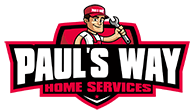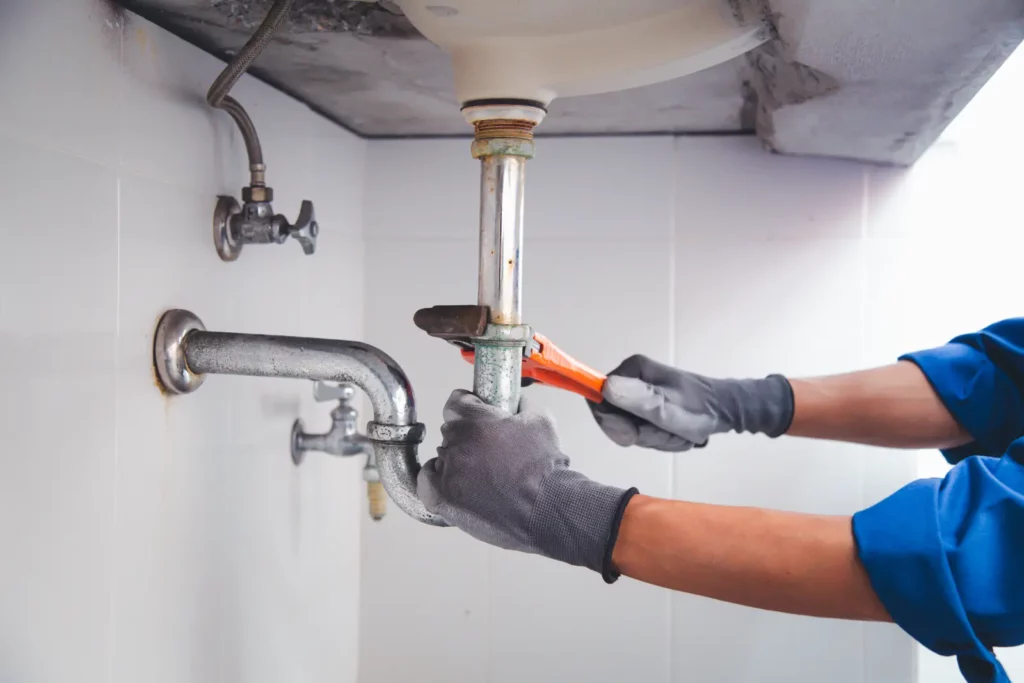Routine sewer line upkeep is not only important, but it is also essential for maintaining a well-functioning plumbing system. By regularly maintaining your sewer lines, you can prevent costly repairs, minimize sewer blockages, and extend the lifespan of your sewer lines.
Not only that, but routine sewer line upkeep also ensures proper wastewater flow, which is crucial for maintaining a healthy plumbing system. So, why is routine sewer line upkeep so significant?
Well, let’s explore the benefits in more detail and discover why it is worth your attention.
Key Takeaways
- Regular maintenance and inspections of sewer lines are important to prevent costly repairs and identify potential issues early.
- Proper usage and disposal practices, such as avoiding flushing non-flushable items and disposing of grease and oil properly, contribute to the longevity of sewer lines.
- Tree root intrusion can be prevented by taking precautions like planting trees away from sewer lines and using root barriers.
- Flushing inappropriate items or pouring grease and oil down the drain can lead to blockages, backups, and costly repairs, as well as pollute water sources and harm the environment.
Prevent Costly Repairs
To prevent costly repairs, regularly maintain and inspect your sewer line. Sewer line maintenance is crucial in ensuring the smooth operation of your plumbing system. By taking early intervention measures, you can avoid expensive repairs and potential damage to your property.
Regular maintenance involves simple tasks that can be easily incorporated into your routine. One essential step is to have your sewer line professionally inspected on a regular basis. This proactive approach allows you to identify any potential issues before they escalate into major problems. Early intervention is key to preventing costly repairs. By catching small leaks or blockages early on, you can save yourself from the headache of dealing with a major sewer line issue.
In addition to professional inspections, there are preventive measures you can take at home. Be mindful of what goes down your drains and toilets. Avoid flushing items that can cause clogs, such as wipes, paper towels, or feminine products. Grease and oil should also be disposed of properly, as they can solidify and block your sewer line over time.
Regular cleaning of your sewer line is another effective maintenance practice. By flushing your system with water or using enzyme-based cleaners, you can keep your pipes clear and free from debris buildup.
Maintaining and inspecting your sewer line is an investment in the longevity and efficiency of your plumbing system. By taking early intervention measures and implementing regular maintenance practices, you can prevent costly repairs and ensure a smoothly functioning sewer line. Don’t wait for a major issue to occur; take action now and protect your home from unnecessary expenses.
Minimize Sewer Blockages
Regular maintenance and inspection of your sewer line not only helps prevent costly repairs but also minimizes sewer blockages. By taking proactive steps to maintain your sewer line, you can ensure that it functions smoothly and efficiently, reducing the risk of blockages and backups.
Here are a few reasons why sewer line maintenance is crucial for minimizing blockages:
- Prevent buildup of debris: Over time, debris such as grease, oil, and tree roots can accumulate in your sewer line, leading to blockages. Regular sewer line cleaning helps remove this buildup, keeping the pipes clear and preventing blockages from occurring.
- Identify potential issues early: Routine maintenance allows you to catch any potential issues with your sewer line before they turn into major problems. By inspecting your sewer line regularly, you can identify any signs of damage, cracks, or leaks and take prompt action to prevent blockages from occurring.
- Early detection saves you money: By addressing issues early on, you can avoid costly repairs that may be required if a blockage occurs. Regular maintenance helps you catch problems before they escalate, saving you both time and money in the long run.
- Maintain a healthy living environment: Minimizing sewer blockages not only prevents inconveniences like backed-up toilets and drains but also helps maintain a clean and healthy living environment. By taking care of your sewer line, you can ensure that wastewater flows smoothly away from your home, reducing the risk of unpleasant odors and potential health hazards.
Extend Lifespan of Sewer Lines
Maintaining the longevity of your sewer lines is essential for avoiding costly repairs and ensuring the uninterrupted flow of wastewater. Regular sewer line maintenance is crucial in extending the lifespan of your sewer lines and preventing potential issues from arising. By taking proactive measures to care for your sewer lines, you can save yourself from the inconvenience and expense of repairs or replacements.
To promote sewer line longevity, it’s important to schedule routine inspections and cleanings. A professional plumber can assess the condition of your sewer lines and identify any signs of damage or blockages. By addressing these issues early on, you can prevent further deterioration and avoid more extensive repairs in the future.
Additionally, proper usage and disposal practices can greatly contribute to the lifespan of your sewer lines. Avoid flushing items like wipes, paper towels, or feminine hygiene products down the toilet, as these can cause clogs and damage to the pipes. Dispose of grease and oil in a separate container instead of pouring them down the drain, as they can solidify and create blockages.
Regular maintenance also involves taking precautions to prevent tree root intrusion. Tree roots are attracted to the moisture and nutrients in sewer lines and can infiltrate the pipes, causing leaks and blockages. By planting trees away from sewer lines and using root barriers, you can reduce the risk of root intrusion and extend the lifespan of your sewer system.
Maintain Healthy Plumbing System
By implementing effective strategies, you can ensure the health and functionality of your plumbing system. Taking proactive measures to maintain a healthy plumbing system not only saves you from costly repairs but also extends the longevity of your plumbing system. Here are some cost-effective maintenance tips to keep your plumbing system in top shape:
- Regularly inspect your plumbing system: Conduct routine checks to identify any potential issues such as leaks, corrosion, or clogs. Early detection can prevent small problems from turning into major headaches.
- Keep drains clean and clear: Avoid pouring grease, food scraps, or other debris down the drains. Use drain screens to catch hair and other particles. Regularly flush drains with hot water to remove any buildup and prevent clogs.
- Maintain proper water pressure: High water pressure can cause stress on your pipes and lead to leaks or bursts. Invest in a pressure regulator to keep the water pressure within optimal levels.
- Be mindful of what you flush: Only flush items that are specifically designed to be flushed, such as toilet paper. Avoid flushing wipes, feminine hygiene products, or other non-flushable items that can clog your pipes.
- Schedule regular professional inspections: Hiring a professional plumber for regular inspections can help identify potential issues before they become costly problems. They can also provide maintenance services such as cleaning your pipes or replacing worn-out parts.
Ensure Proper Wastewater Flow
To ensure proper wastewater flow, it’s essential to keep your sewer lines free from obstructions and blockages. Regular sewer line maintenance is crucial for effective wastewater management and to prevent any unwanted backups or overflows. By taking proactive steps to maintain your sewer lines, you can avoid costly repairs and ensure the smooth operation of your plumbing system.
One of the most effective ways to ensure proper wastewater flow is by scheduling routine sewer line inspections. A professional plumber can use specialized tools and equipment to inspect the condition of your sewer lines and identify any potential issues. This proactive approach allows you to address any problems before they escalate into major blockages or obstructions.
In addition to inspections, regular cleaning of your sewer lines is also essential. Over time, debris, grease, and other substances can accumulate inside the pipes, restricting the flow of wastewater. By scheduling periodic sewer line cleaning, you can remove these obstructions and ensure that wastewater can flow freely.
Another important aspect of maintaining proper wastewater flow is being mindful of what you flush down the toilet or pour down the drain. Avoid flushing items that can cause blockages, such as sanitary products, baby wipes, or excessive amounts of toilet paper. Additionally, be cautious about pouring grease or oil down the drain, as they can solidify and cause clogs.
Final Thoughts
Regular maintenance of sewer lines is essential to prevent expensive repairs, minimize blockages, and extend their lifespan.
By keeping up with routine upkeep, you can maintain a healthy plumbing system and ensure proper wastewater flow.
Don’t overlook the significance of this simple task, as it can save you time, money, and headaches in the long run.
So, make sure to prioritize the regular maintenance of your sewer lines for a trouble-free plumbing experience!

